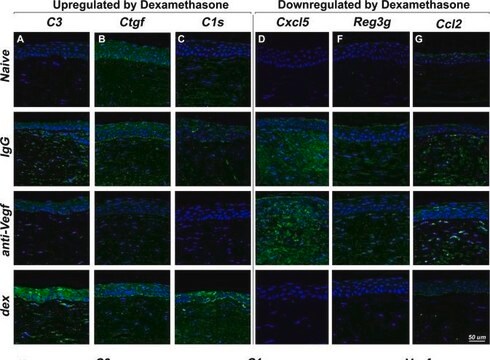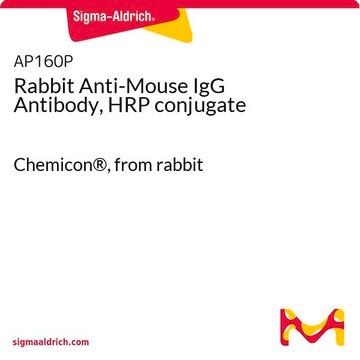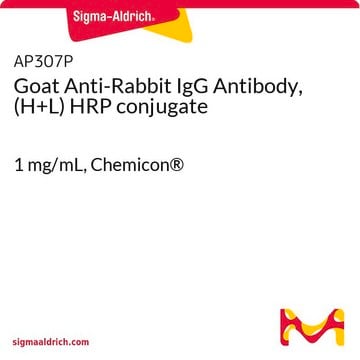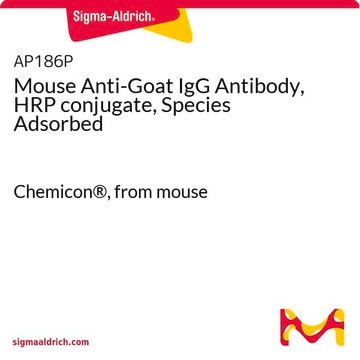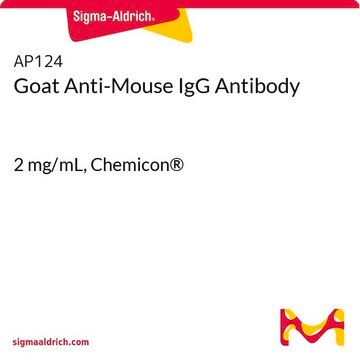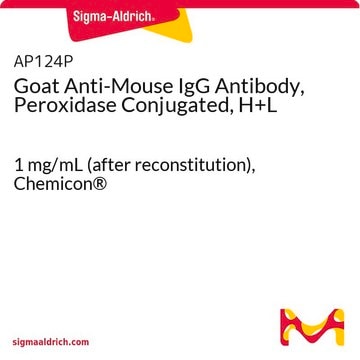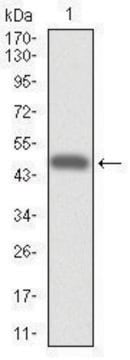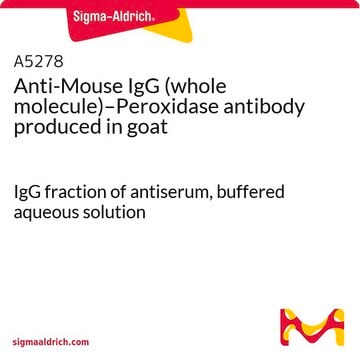12-349
Goat Anti-Mouse IgG Antibody, HRP conjugate
Upstate®, from goat
Synonym(s):
Goat IgG Antibody, HRP-Conjugated Goat Anti-Mouse IgG
About This Item
Recommended Products
biological source
goat
Quality Level
conjugate
peroxidase conjugate
antibody form
purified immunoglobulin
antibody product type
secondary antibodies
clone
polyclonal
species reactivity
mouse
manufacturer/tradename
Upstate®
technique(s)
ELISA: suitable
immunohistochemistry: suitable
western blot: suitable
shipped in
dry ice
target post-translational modification
unmodified
General description
Specificity
Immunogen
Application
ELISA and Immunohistochemistry:
A working dilution of 1:10,000 to 1:40,000 is suggested for ELISA and 1:500 to 1:2,000 for immunohistochemistry.
Optimal antibody dilution for other applications should be determined by the researcher.
Secondary & Control Antibodies
Whole Immunoglobulin Secondary Antibodies
Quality
Suitable for western blotting (dot blot) at 1:1,000 to 1:4,000 dilution.
Physical form
Rehydration: Add 500 µL sterile, distilled water containing 50% glycerol, to make a 1 mg/mL stock solution.
Storage and Stability
Legal Information
Disclaimer
Not finding the right product?
Try our Product Selector Tool.
Storage Class Code
13 - Non Combustible Solids
WGK
WGK 3
Flash Point(F)
Not applicable
Flash Point(C)
Not applicable
Certificates of Analysis (COA)
Search for Certificates of Analysis (COA) by entering the products Lot/Batch Number. Lot and Batch Numbers can be found on a product’s label following the words ‘Lot’ or ‘Batch’.
Already Own This Product?
Find documentation for the products that you have recently purchased in the Document Library.
Customers Also Viewed
Articles
Review the key factors that should figure in your decision to choose a secondary antibody. Learn about species, subclass, isotype, label, and more.
Review the key factors that should figure in your decision to choose a secondary antibody. Learn about species, subclass, isotype, label, and more.
Review the key factors that should figure in your decision to choose a secondary antibody. Learn about species, subclass, isotype, label, and more.
Review the key factors that should figure in your decision to choose a secondary antibody. Learn about species, subclass, isotype, label, and more.
Our team of scientists has experience in all areas of research including Life Science, Material Science, Chemical Synthesis, Chromatography, Analytical and many others.
Contact Technical Service


